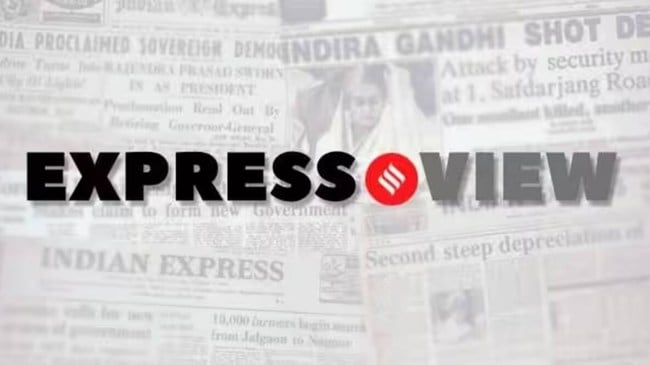Opinion J P Nadda is right in calling out BJP MPs’ crude targeting of judiciary — he needs to do more
It isn’t just Nishikant Dubey and Dinesh Sharma. No less than the country’s Vice-President and two governors have pushed at the constitutionally laid out red lines that circumscribe their high office.
 However, in showing disrespect to the Court, in not abiding by constitutional restraints, some elements of the powers-that-be contribute to the fraying of the fabric. Nadda has spoken, Nadda needs to act.
However, in showing disrespect to the Court, in not abiding by constitutional restraints, some elements of the powers-that-be contribute to the fraying of the fabric. Nadda has spoken, Nadda needs to act. BJP president JP Nadda’s statement distancing his party from the remarks of two MPs crudely targeting the Chief Justice of India and the judiciary is welcome. But it is not enough. Because, recently, the BJP seems beset with a troubling contagion. It folds in party MPs, at least one party office-bearer and party-appointed high constitutional functionaries. The two colleagues who invited Nadda’s rebuke were four-time MP and chairman of a parliamentary committee, Nishikant Dubey, and Dinesh Sharma, also an MP. In language discourteous and lurching, Dubey held the CJI responsible for “all civil wars in the country” and criticised the Supreme Court — “kanoon yadi Supreme Court hi banayega toh sansad bhavan band kar dena chahiye (If SC makes the laws, Parliament should be shut down)”. Sharma endorsed Dubey’s rant: “Jan manas mein ek aashanka hoti hai (a suspicion arises in the minds of the people) … No one can challenge the President, the President is supreme”. Both MPs were speaking in the context of recent SC rulings: In the Tamil Nadu Governor case, where it set timelines in law-making for Governor and President, and in red-flagging aspects of the Waqf Act that the government has now put on hold. Of course, guardrails for the Governor are welcome but setting a timeline for the President, as this newspaper flagged, is fraught and the court may need to revisit this. But Dubey’s is a hatchet job, not a critique. Indeed, hours after Nadda described the views of Dubey and Sharma as “personal statements” that the party “completely rejects”, Dubey took aim again. Targeting former CEC SY Quraishi over his criticism of the Waqf Act, Dubey called him a “Muslim Commissioner” — this was after BJP general secretary (Organisation) BL Santhosh hit out at Quraishi, saying that it was “in spite of all these characters” that India remained a democracy.
It isn’t just Messrs Dubey, Sharma and Santhosh. No less than the country’s Vice-President and two governors have pushed at the constitutionally laid out red lines that circumscribe their high office. V-P Jagdeep Dhankhar called the SC a “super Parliament”, and described Article 142, which empowers the Court to ensure “complete justice”, a “nuclear missile against democratic forces”. In West Bengal, Governor Ananda Bose toured violence-hit areas, megaphone in hand, and urged people to come to him directly — as if he were the local MLA or MP. And only days after the SC order that held his stalling of bills as illegal, Tamil Nadu Governor RN Ravi, became a cheer-leader for the powerful, asking students to chant “Jai Shri Ram” at a college event in Madurai.
Last year, the Narendra Modi government returned to power for a third time — its party tally dented but its political-electoral dominance unquestioned. Three assembly victories have burnished that triumph. And yet, within its ranks, 11 years later, is a winner-has-to-take-all approach. In a constitutional system, a mosaic of power and checks and balances, the Judiciary is the custodian of citizens’ fundamental rights and of the Constitution’s letter and spirit. On Saturday, Nadda underlined it; the PM has, time and again, spoken of the Constitution’s primacy and said that the Opposition’s campaign that it is in danger must be called out strongly. However, in showing disrespect to the Court, in not abiding by constitutional restraints, some elements of the powers-that-be contribute to the fraying of the fabric. Nadda has spoken, Nadda needs to act.






